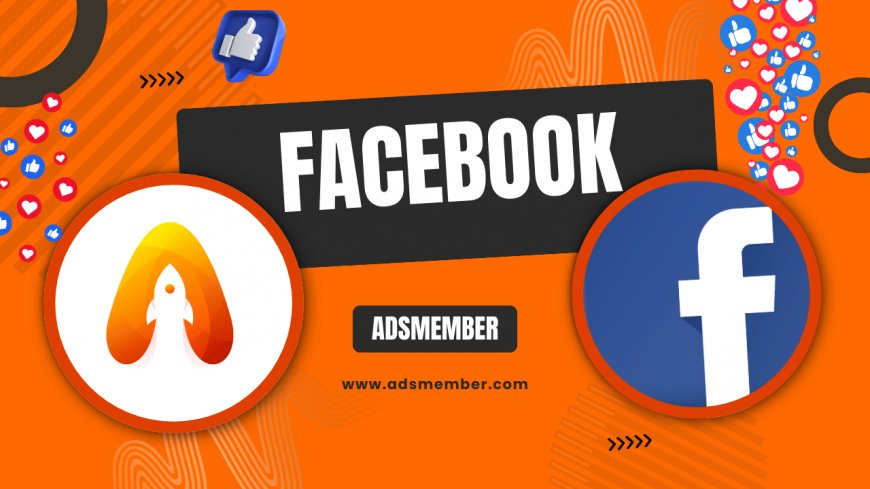How to Secure and Manage My Facebook Account Like a Pro
Learn expert tips to secure and manage my Facebook account effectively. Discover privacy settings, two-factor authentication, recovery steps, and unique hacks…

Hey there! If you’ve ever worried about someone hacking into 'my facebook-page-likes-with-getafollower-safely">Facebook account' or just want to manage it better, you’re in the right place. I’ve spent years diving into social media security, and honestly, Facebook can be a goldmine for personal data if not handled right. In this guide, I’ll walk you through actionable steps to secure your profile, tweak privacy settings, and recover access if things go south. Let’s make sure your account stays yours—forever.
Why Securing My Facebook Account Matters
In my opinion, your Facebook account isn’t just a social hub; it’s a digital identity. With over 2.9 billion monthly active users as of 2023 (source: Statista), it’s a prime target for hackers. A breach could mean stolen photos, impersonation, or even financial scams. I’ve seen friends lose access for weeks, and the stress is real. Let’s not let that happen to you.
Common Threats to Watch Out For
Phishing links, fake login pages, and weak passwords are the big culprits. Honestly, clicking a shady link in a DM once cost me a day of panic until I reset everything. Hackers also exploit forgotten devices or public Wi-Fi logins. Stay sharp—always log out on shared devices.
Step-by-Step: Securing My Facebook Account
Let’s get practical. Securing 'my Facebook account' doesn’t have to be a headache. Follow these detailed steps I’ve refined over years of trial and error. They’re straight from Facebook’s own security toolkit but with my personal spin for ease.
Enable Two-Factor Authentication (2FA)
Two-factor authentication is a game-changer. Go to Settings & Privacy > Security and Login > Two-Factor Authentication. Choose a method—text message or authenticator app (I prefer apps like Google Authenticator for speed). This adds a second layer; even if someone guesses your password, they’re stuck without the code. I’ve used 2FA for years, and it’s saved me from sketchy login attempts.
Set a Strong, Unique Password
Don’t use 'password123'—seriously. Combine letters, numbers, and symbols, and make it at least 12 characters. Use a password manager if you’re forgetful (I swear by LastPass). Pro tip: Change it every 6 months. I once reused a password across platforms and regretted it when a minor breach elsewhere risked my Facebook.
Review Privacy Settings
Dive into Settings > Privacy. Limit who sees your posts, friends list, and personal info. I set mine to 'Friends' for most things—public posts are a hacker’s dream. Also, disable search engine indexing under 'Privacy Settings & Tools.' It’s a small tweak that keeps your profile off Google searches. Trust me, it’s worth the 2 minutes.
Visualizing Facebook Security Risks
Let’s break down the risks with a simple chart. I’ve created an SVG to show the percentage of common threats based on general trends from security reports. This visual helps me—and hopefully you—grasp where to focus efforts.
How to Recover My Facebook Account if Hacked
Losing access to 'my Facebook account' is gut-wrenching. I’ve been there, and the panic is real. But Facebook’s recovery process works if you act fast. Here’s what to do, based on their official steps and my own experience.
Reset Your Password Immediately
Head to the login page and click 'Forgot Password?' Follow the prompts to reset via email or phone. If a hacker changed your email, use the 'No longer have access to these?' option. I once had to verify my identity with a photo ID—keep a digital copy handy for emergencies.
Contact Facebook Support
If recovery fails, visit the Help Center (Facebook Help). Report the hack under 'Hacked Accounts.' Response times vary, but persistence pays off. A friend of mine got back in after a week by repeatedly submitting forms with detailed proof.
Unique Tip: Set Up Legacy Contacts
Here’s a gem most people overlook: Legacy Contacts. In Settings > Memorialization Settings, assign a trusted friend to manage 'my Facebook account' if something happens to you. It’s not just morbid planning—it ensures your digital legacy isn’t lost or abused. I set mine up after a family member passed, and it gave peace of mind.
FAQ: How Do I Check If My Facebook Account Is Compromised?
Go to Security and Login > Where You’re Logged In. Look for unfamiliar devices or locations. If you spot something odd, click 'Log Out of All Sessions' and change your password ASAP. I check this monthly—it’s a quick safety net.
FAQ: Can I Hide My Facebook Account Completely?
Not entirely, but you can minimize visibility. Set all privacy options to 'Only Me' or 'Friends,' deactivate temporarily, or restrict old posts. I’ve done this during job hunts to keep things low-key. It works!
FAQ: What’s the Best Way to Back Up My Facebook Data?
Go to Settings > Your Facebook Information > Download Your Information. Select what to save (photos, posts, etc.) and request a file. I do this yearly—saved me when I accidentally deleted old memories.
FAQ: How Often Should I Update My Facebook Password?
Every 6 months is ideal, or sooner if you suspect a breach. I set calendar reminders—it’s a small habit with big impact. Use a unique password each time.
FAQ: Does Two-Factor Authentication Slow Down Login?
Not really. It adds a few seconds to enter a code, but the security is worth it. I’ve used it for years without frustration—just keep your phone handy.
What's Your Reaction?
 Like
0
Like
0
 Dislike
0
Dislike
0
 Love
0
Love
0
 Funny
0
Funny
0
 Angry
0
Angry
0
 Sad
0
Sad
0
 Wow
0
Wow
0


















































